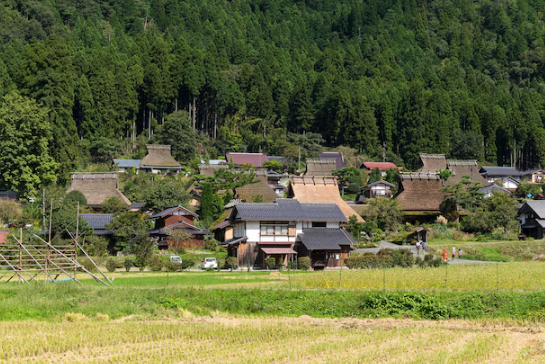
Okinawa, Japan's southernmost prefecture, is globally renowned as the "Island of Longevity." It boasts one of the highest concentrations of centenarians worldwide, a testament to a unique lifestyle that has captivated researchers and health enthusiasts alike. Recent reports, including one by the Arab media outlet Gulf News on July 6th, have highlighted the pivotal role of Okinawa's distinctive eating habits in fostering such remarkable health and longevity.
The "Hara Hachi Bu" Philosophy: Eating to 80% Full
At the heart of Okinawan longevity lies a surprisingly simple yet profound dietary philosophy: "Hara Hachi Bu." This concept, rooted in Confucian teachings, dictates stopping eating when one is approximately 80% full. It's a principle of moderation that actively prevents overeating, a common precursor to numerous chronic diseases in modern societies. This mindful approach to meals is not just about calorie restriction; it’s about listening to the body’s signals and respecting its natural limits.
Experts consistently point to this habit as a critical factor in reducing overall caloric intake without deprivation, leading to better metabolic health and stable weight management. The consistent practice of "Hara Hachi Bu" helps regulate satiety, train the body to recognize true hunger, and avoid the inflammatory responses associated with excessive eating.
A Slower, Communal Approach to Dining
Beyond the "80% full" rule, Okinawan food culture emphasizes slow, communal meals. Eating with family and neighbors is a deeply ingrained practice, fostering social connections and reducing stress. This unhurried pace allows for better digestion and nutrient absorption, as the body has ample time to process food signals. It's a stark contrast to the fast-paced, often solitary eating habits prevalent in many Western cultures. This shared experience contributes to a strong sense of community and support, which are well-documented factors in overall well-being and mental health, indirectly contributing to physical longevity.
The Power of a Plant-Based, Nutrient-Rich Diet
The Okinawan diet is primarily composed of natural, unprocessed ingredients, largely sourced from the local environment. It's a testament to the idea that food is medicine, focusing on a vibrant array of whole foods:
Abundant Seasonal Vegetables: Purple sweet potatoes (beni imo), bitter melon (goya), kelp (kombu), daikon radish, and pumpkin are staples. These vegetables are rich in antioxidants, vitamins, and minerals, providing robust protection against cellular damage and inflammation. The purple sweet potato, in particular, is a cornerstone of the Okinawan diet, boasting high levels of anthocyanins, powerful antioxidants.
Legumes as a Cornerstone: Tofu, miso, natto, and edamame (green soybeans) are consumed regularly. These provide excellent sources of plant-based protein, fiber, and various micronutrients. The fermentation process in miso and natto also introduces beneficial probiotics, supporting gut health.
Whole Grains over Refined Grains: Brown rice and millet are preferred over white rice. Whole grains offer sustained energy release, higher fiber content, and a broader spectrum of B vitamins and minerals compared to their refined counterparts.
Natural Flavor Enhancers and Antioxidant-Rich Beverages: Tropical fruits, turmeric, ginger, and mugwort are used to flavor dishes naturally, adding not just taste but also potent anti-inflammatory and antioxidant properties. Green tea and jasmine tea, rich in catechins and polyphenols, are frequently consumed, further boosting antioxidant intake.
Minimal Meat and Dairy: Unlike many modern diets, meat and dairy products are consumed in very small quantities, often as flavorings rather than main components. This significantly reduces the intake of saturated fats and cholesterol, contributing to a lower risk of cardiovascular disease.
The Health Benefits: Reducing Inflammation and Chronic Disease Risk
The synergy of these dietary habits creates a powerful shield against age-related diseases. The abundance of antioxidants, dietary fiber, and essential minerals in the Okinawan diet actively reduces cellular damage caused by free radicals and lowers systemic inflammation. This comprehensive nutritional profile translates into tangible health benefits:
Improved Metabolism: Okinawans exhibit more active metabolisms, which helps in efficient energy utilization and prevents the accumulation of excess fat.
Lower Inflammation Levels: The anti-inflammatory compounds found in their diet significantly reduce chronic inflammation, a key driver of many age-related diseases.
Stable Weight Management: The combination of "Hara Hachi Bu" and a nutrient-dense, calorie-appropriate diet naturally leads to stable and healthy body weight.
Reduced Risk of Chronic Diseases: Experts have observed significantly lower rates of cardiovascular disease, type 2 diabetes, and certain cancers among Okinawans. The diet's emphasis on plant-based foods and low saturated fat intake directly contributes to this.
Decreased Incidence of Neurodegenerative Diseases: The high intake of antioxidants and omega-3 fatty acids (from certain plant sources and minimal fish consumption) is believed to play a role in protecting brain health and reducing the risk of conditions like Alzheimer's and Parkinson's disease.
In essence, the Okinawan approach to food — sharing healthy ingredients, enjoying slow meals with loved ones, and embracing moderation — is not merely a diet; it's a holistic lifestyle deeply intertwined with their remarkable health and longevity. It offers a compelling blueprint for how dietary choices can profoundly impact our well-being and extend our healthy lifespans.
[Copyright (c) Global Economic Times. All Rights Reserved.]






























